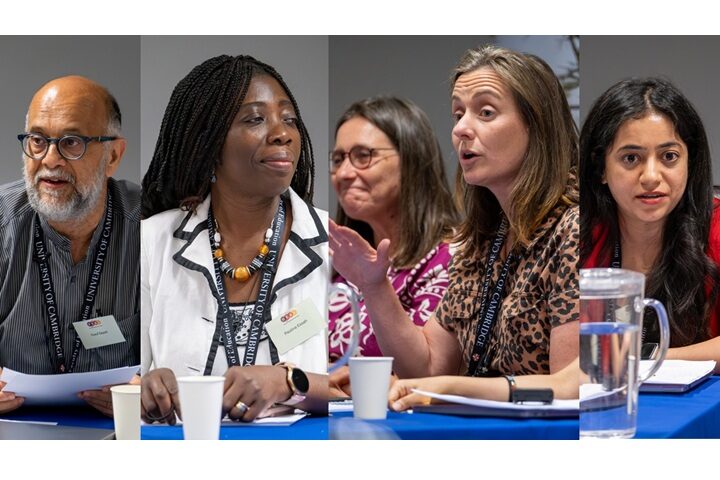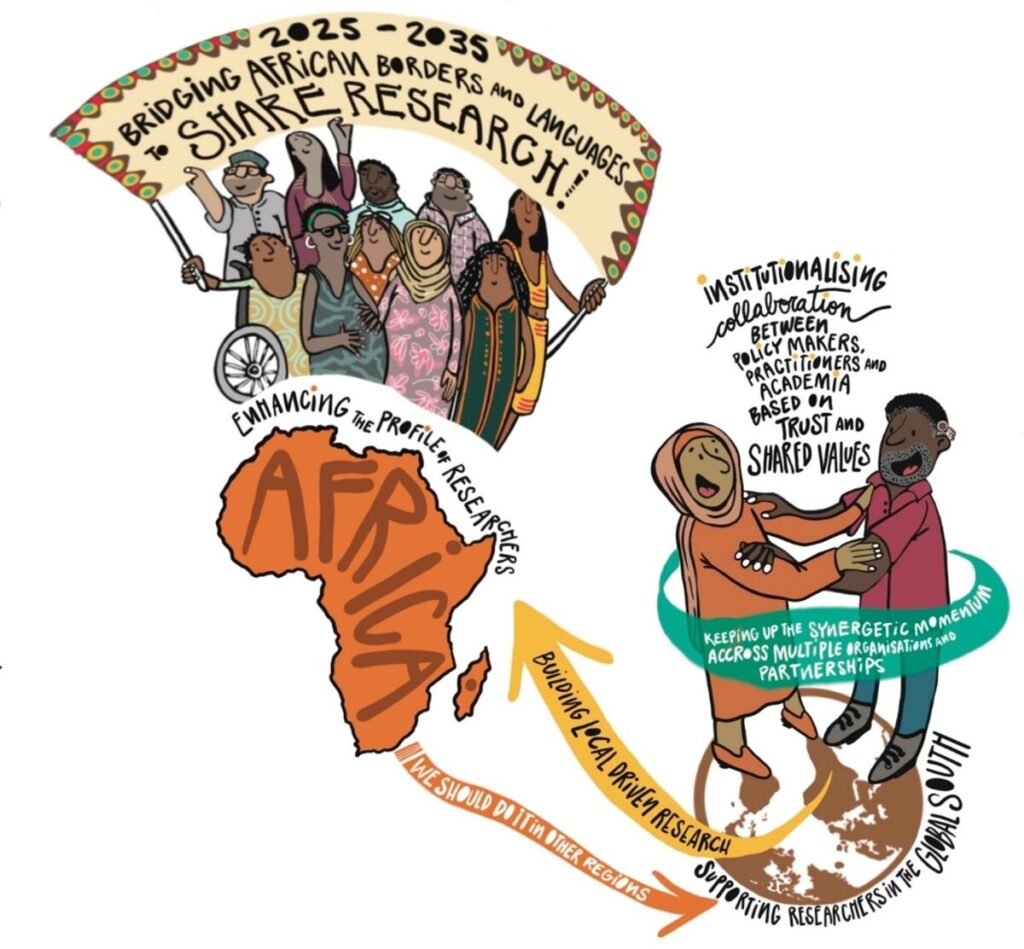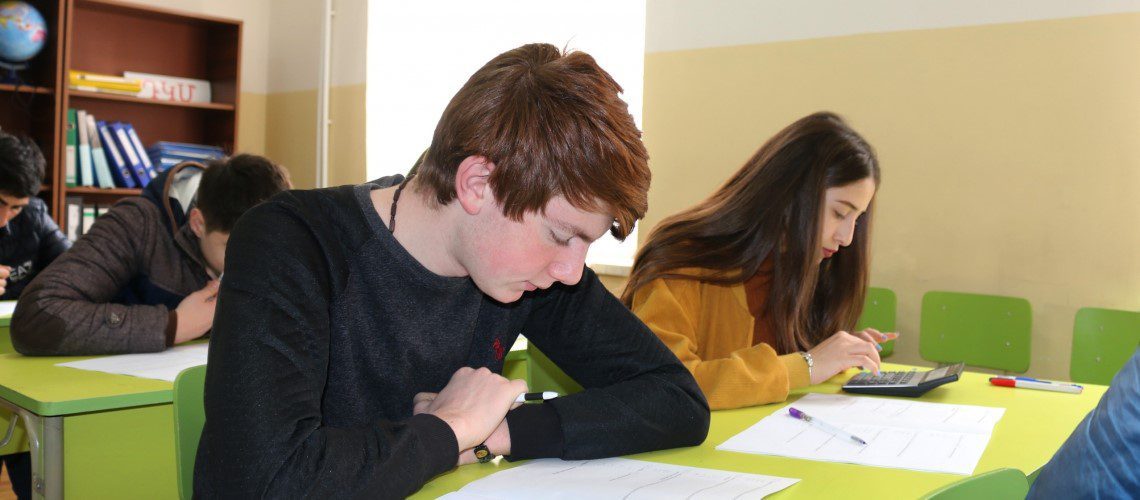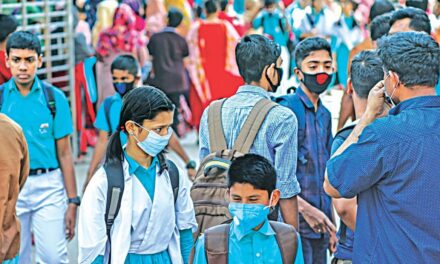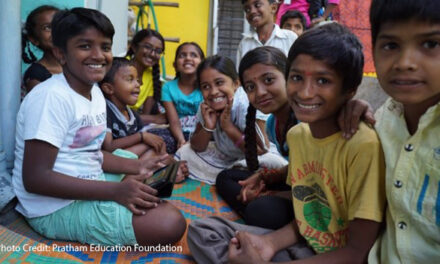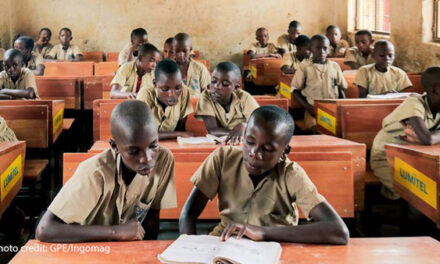This blog was written by Dr Laraib Niaz, Research Associate at the REAL Centre, University of Cambridge. It provides reflections from the closing panel at the REAL Centre’s 10-Year Anniversary Conference on 12 June 2025.
As the REAL Centre at the University of Cambridge celebrated its 10-year anniversary, the closing panel of the conference posed a powerful and timely question: “Where next?” At a moment when the education and international development sector is confronting widespread funding cuts, rising global inequality, climate injustices and genocide, the question was not just about direction, but about values, priorities and vision.
The closing panel did not attempt to provide easy answers. Instead, it offered a set of guiding themes for the future of education and international development. These themes emerged from diverse voices across research and practice but resonated as a shared agenda: to ensure education is anchored in justice, inclusive of marginalised perspectives, interlinked with global challenges and committed to turning evidence into meaningful action.
You can watch the panel discussion here:
Education as a space for justice
One of the clearest themes to emerge was the centrality of justice in education. The panel reminded us that the struggle for dignity and freedom begins in classrooms. Education must be more than access to schools or incremental improvements in delivery; it must be a transformative process that resists structural inequalities.
This requires meaningful engagement with the most marginalised. Genuine transformation involves co-creating agendas with communities, amplifying voices from the Global South, and ensuring that those who are often silenced become shapers of education futures.
As Professor Yusuf Sayed, University of Cambridge, pointed out – teachers play a pivotal role in this transformation. Teacher professional development must be treated as a cornerstone of equitable reform with investment in teachers’ growth, resilience and agency. As the field looks forward, supporting teachers in contexts of adversity, whether through in-service training, mentoring or collaborative professional development, will be key to embedding justice in classrooms.
 This theme was also closely tied to the role of advocacy. Dr Laraib Niaz, REAL Centre, reminded us that research cannot be neutral in times of crisis. It must have the courage to speak truth to power. In moments of deepening inequality, violent conflict and mass displacement, advocacy becomes not an optional extra but a responsibility – and here, the REAL Centre was applauded for its efforts. Education research and practice must stand in solidarity with the oppressed, ensuring that research reflects the voices of those most excluded from power.
This theme was also closely tied to the role of advocacy. Dr Laraib Niaz, REAL Centre, reminded us that research cannot be neutral in times of crisis. It must have the courage to speak truth to power. In moments of deepening inequality, violent conflict and mass displacement, advocacy becomes not an optional extra but a responsibility – and here, the REAL Centre was applauded for its efforts. Education research and practice must stand in solidarity with the oppressed, ensuring that research reflects the voices of those most excluded from power.
Learning and partnerships across time and place
Another recurring theme was the importance of time, not only the urgency of immediate responses, but the necessity of long-term vision. Dr Pauline Essah, Education Sub Saharan Africa, highlighted the lack of longitudinal research in education and international development. Too often, interventions are assessed in the short term, without attention to what works overtime, for whom, and in which contexts.
Thinking beyond traditional disciplinary silos was highlighted as imperative: “Educationists need to start describing themselves as climate activists,” urged Dr Laura Savage, International Education Funders Group. There was a call for more interdisciplinary work that can capture the complexity of the challenges the field of education and international development is facing.
Pauline Essah also urged the need to enhance the visibility of researchers from the Global South, not just as participants but as leaders in generating and shaping evidence. The anniversary reflected on how the REAL Centre has hosted Global South scholars in Cambridge and worked to mentor early-career researchers, but the call was to go further and to deepen commitments to equitable collaboration.
Here, Laraib Niaz highlighted how it is imperative to mentor and support early-career researchers. Opportunities in education research remain concentrated in the Global North, reinforcing global asymmetries in knowledge production. The REAL Centre has been recognised for standing out in this regard, but the message was clear: more needs to be done to redistribute opportunities, build capacity and ensure that research agendas are shaped collaboratively rather than imposed hierarchically.
From evidence to action
A strong theme running across the panel was the need to shift from advocacy and research alone towards tangible action. The past decade has produced a wealth of studies, evaluations and recommendations. The pressing question now is how to make evidence actionable. The field knows enough, several speakers argued, to act more decisively. The challenge is not simply to learn more, but to act on what is already known, to consolidate evidence and to package it in ways that are accessible and useful. Interdisciplinary approaches offer ways to translate this evidence into meaningful solutions, bridging research, policy and practice.
Laura Savage highlighted how the idea of “Common Sense theory” as a reminder of the need for practicality. Too often, education reforms fail because of avoidable oversights, such as scheduling teacher training during term time. Paying attention to such common-sense insights, rooted in the realities of schools and communities, is critical to ensuring reforms are not only innovative but workable.
Engaging with politics and power directly was another call from the panel. Education reform cannot be understood apart from the norms, institutions and hierarchies of the aid world. Speaking truth to power involves addressing the privileges and pressures that shape global education policy and recognising that research is always situated within these dynamics. Panellists reflected on the “five Ps”: politics, power, positivity, proactivity and place, as well as the audience’s additions: pressures, partnerships, purpose, provocations, privileges and priorities. These concepts together form a reminder that education change is political, and research must engage with that reality rather than pretend neutrality.
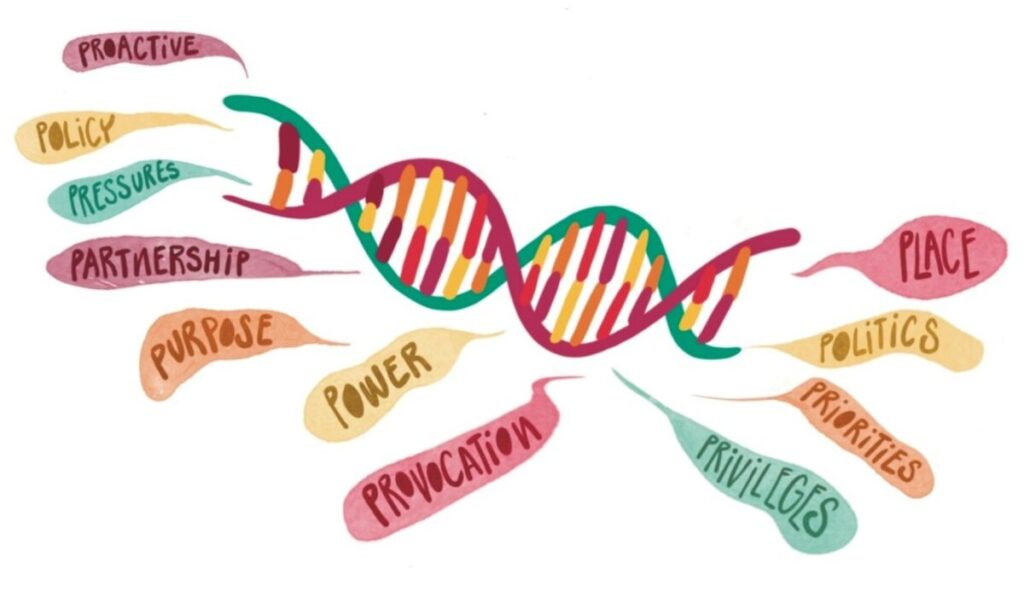 From evidence to action also requires listening. Evidence is not just data; it includes the lived experiences of those who participate in education systems. Amplifying local voices, especially from the Global South, was seen as crucial to turning research into meaningful reform. Without these voices, action risks replicating old hierarchies rather than challenging them.
From evidence to action also requires listening. Evidence is not just data; it includes the lived experiences of those who participate in education systems. Amplifying local voices, especially from the Global South, was seen as crucial to turning research into meaningful reform. Without these voices, action risks replicating old hierarchies rather than challenging them.
What should the REAL Centre do next?
While the panel looked outward, it also turned inward, offering reflections and suggestions for what the REAL Centre itself should aim to do in the next decade. Some of the key messages included:
- Sustain and deepen support for early-career researchers from the Global South, especially through research associateships, mentoring and collaborative projects.
- Invest in longitudinal and systems-level research that explores the impact of education across time and context.
- Engage more deliberately with interdisciplinary approaches, especially those linking education with climate action, health and broader social justice goals.
- Consolidate and communicate evidence more effectively, ensuring that it is accessible and actionable for policymakers, practitioners and communities.
- Continue to advocate for education and social justice, amplifying marginalised voices and taking principled positions on global injustices when others remain silent.
Looking ahead
The “Where Next?” panel closed the REAL Centre’s 10-year anniversary conference not with easy answers, but with urgent, hopeful and important questioning. As the field of education and international development navigates an increasingly complex global landscape, the messages from this panel were clear: we must be more inclusive, more focused on social justice, and we must do it together.
The REAL Centre has a critical role to play in this future, not only as a research centre, but as a space of solidarity, resistance and knowledge generation.
—–
This blog is part of a series unpicking issues discussed at the REAL Centre 10-year anniversary conference in June 2025. Others in the series include:
A decade of learning, a future of inclusion: The REAL Centre’s journey
The role of education in decolonisation, climate and conflict: A call to action
Advancing inclusive education: Moving beyond tokenism
Elevating teachers’ voices to support equitable learning

